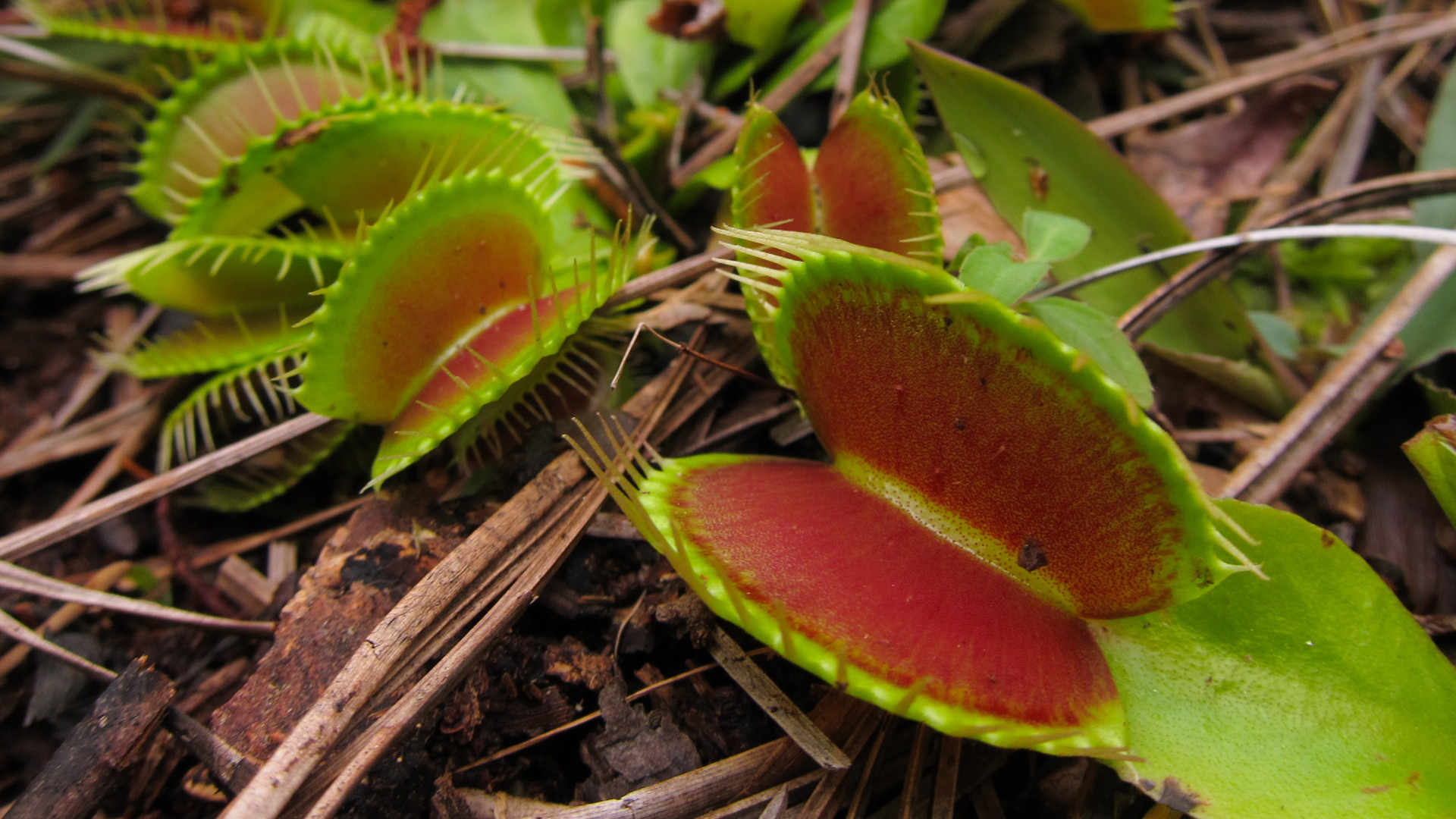Walk into almost any garden shop, or even your local Wal-Mart, and you may notice a curious display: rows of fierce, lightning-fast carnivores in little plastic cups. These tiny cups contain Venus flytraps, the only plant of their kind and a species that’s quickly nearing extinction in the wild. But you’d never know that from the sale price of $5 to $10.
The allure of owning a flytrap, with its terrifyingly beautiful crimson jaws and macabre mystique, is undeniable. And, to be fair, many flytraps are cultivated and sold legally by growers. But all too often, that cheap novelty plant may have reached the store by a much more sordid and secretive means: a complex web of poaching, poverty and black-market dealers.
Venus flytraps (Dionae muscipula) grow in just a few small areas in North and South Carolina. Although they’re protected under state law (and are being considered for national protection under the Endangered Species Act), there’s a large illegal market for them. Poachers have been known to steal thousands of plants from the wild at a time and sell them to dealers for as little as 25 cents apiece.
Solving this is not easy under existing systems. The overarching problem with Venus flytrap poaching, as with all plant poaching, is that those who bear the brunt of enforcement are typically the most disadvantaged. People who crawl through swamps or chop down trees at night are often motivated by financial necessity — what I call “poverty poaching.” Because they’re more easily caught than illegal dealers, these poachers are often the only ones paying fines, furthering the cycle of poverty. Meanwhile the dealers who largely drive the market for poached plants usually escape enforcement, sometimes even falling entirely outside poaching laws.
What sets the problem of plant poaching apart from the more well-known crimes of wildlife poaching is the fact that the law tends to value plants less than animals. Plants are a vital part of any ecosystem, but those species that are heavily poached don’t enjoy the same level of protection and media spotlight as beloved animals like rhinos or elephants. That’s a shame, because poaching of highly coveted plants like ginseng, orchids and maples devastates these species and robs us of millions of dollars of natural value each year.
Few laws protect plants. Many state poaching laws — and even the federal Endangered Species Act — are designed more toward helping animals. Whatever small fines exist for protected plants are usually a small disincentive compared to the allure of quick profits.
To address this, my recent paper in the Washington Journal of Environmental Law & Policy proposes a multilevel approach using a relatively new North Carolina state law and the federal Lacey Act. The approach would provide more meaningful protection to the Venus flytrap and target illegal plant dealers with harsher punishments than small-time poverty poachers.
The starting point is a 2014 state law that made poaching flytraps a felony, with increased fines and potential jail time. The law shows the state’s desire to protect its beloved official carnivorous plant, but also reinforces the inequities of most poaching laws. The penalty only applies to poachers who are caught in the act, making enforcement very difficult and entirely bypassing the black-market dealers.
But this felony penalty could be a powerful tool if used in conjunction with the Lacey Act. The Lacey Act, which prohibits interstate trade in protected species, is designed as an overlay — a way to levy federal poaching charges using the substantive laws of a state, tribe or foreign nation. Federal prosecutors successfully used it recently to indict a lumber mill in Washington state that was intentionally buying poached maple wood, making roughly $800,000 from the stolen wood in just two years.
The Lacey Act provides two useful mechanisms for prosecutors. First, it allows for much scarier disincentives (up to $10,000 for a civil penalty and up to $20,000 and five years in prison for criminal penalties). Second, it can be used in some cases — especially in conjunction with a state permitting system — to more easily prove when a dealer intentionally or carelessly buys plants he should know were poached.
North Carolina already has some permitting requirements for flytrap dealers (as well as dealers in ginseng, another frequent poaching target). The combination of these state permitting laws, the state flytrap poaching felony, and the Lacey Act could be used to strike more effective — and more equitable — blows against the most egregious dealers.
Luckily, public awareness of the plight of the truly unique Venus flytrap is slowly starting to grow, and it seems positioned for greater protection. If that happens, this curious carnivore may serve as a case study for real change for poached plants. And the survival of Venus flytraps, as well as a wide array of other plant species, may depend on it.
© 2018 Katrina Outland. All rights reserved.
The opinions expressed above are those of the author and do not necessarily reflect those of The Revelator, the Center for Biological Diversity or their employees.


